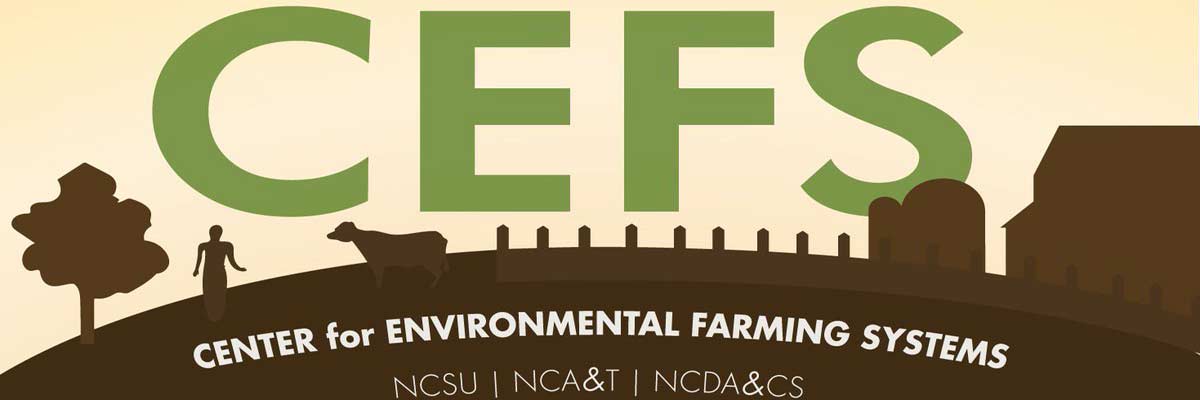Building a Sustainable Local Food Economy in North Carolina
The Center for Environmental Farming Systems in North Carolina is pleased to announce that it has been funded to reach out across the state and together with our partners ask: What will it take to build a sustainable local food economy in North Carolina?
From the mountains to the coast, various organizations are promoting and implementing exciting initiatives to support our state and communities through sustainable local agriculture. Examples include new farmer’s markets, local food policy councils, comprehensive county- or region-based food initiatives, farm incubator programs, farm and/or garden youth education programs, health and nutrition projects focused on local sustainable foods, procurement initiatives by large retail and institutional buyers and schools, and much more.
If each North Carolinian spent 25 cents/day on local food (just 2.5 percent of the $3600.00 that we spend on average on food consumption per year), it would mean $792 million for the state’s economy. That money circulates here in the state so has a multiplier effect, rather than going to a corporate headquarters in another state.
Other benefits of a sustainable local food economy in North Carolina include economic development, job creation within farming and food sectors, preservation of open space, decreased use of fossil fuel and associated carbon emissions, preservation and protection of the natural environment, increased consumer access to fresh and nutritious foods, and greater food security for all North Carolinians.
Over the next year, CEFS and its partners will be gathering information from across food system sectors: conducting regional meetings, targeted issues discussions, interviews, and hosting a statewide summit on March 2 and 3, 2009. Our desired result is a Statewide Action Plan for Building the Local Food Economy with specific steps (short- and long-term) that policy makers, Universities, government agencies, environmental organizations, businesses, funding agencies, social activists, NGOs and citizens can take to make this happen.
The first three regional meetings, held in Raleigh, Burgaw, and Asheville, were very well attended. Because of the interest, three additional meetings have been added:
Charlotte area: December 8, 2008. 1:30-4:30 at Cabarrus Arena and Event Center. The address is: 4751 Highway 49 North, Concord, NC 28025
Winston-Salem: December 10, 2008. 5:30-8:30 PM. SciWorks. 400 W Hanes Mill Rd, Winston Salem, (336) 767-6734.
Greenville: December 15, 2008. 1:30-4:30 at St. Timothy’s, 107 Louis St., Greenville.
Please RSVP to amber_polk@ncsu.edu if you are attending a regional meeting as these meetings have been filling up.
The purpose of the regional meetings is to bring together those engaged in all aspects of the food system, to collect information and ideas that will be the building blocks of discussion at the summit and eventually the core components of the State Action Plan. We want to identify specific regional and local sustainable food systems models that are working and also regional challenges that can be addressed through policies, programs, and funding. We seek to engage the broad group of those involved with the food system including farmers, suppliers, processors, economic development organizations, distributors, farm and food industry workers, extension and other educators, marketers, financial institutions, Universities and community colleges, elected officials, government agencies, county and city planners, farm organizations, anti-poverty organizers, social justice workers, consumers and consumer groups, granting agencies, health and wellness organizations, environmental groups, food banks, and more. These regional meetings will be facilitated listening sessions and provide important input into this process, so we are encouraging broad participation.
The end product–the State Action Plan–will articulate a shared vision and set of common goals for building a local, sustainable food system and economy in North Carolina. It will:
1) describe key elements of our current food system and define key terms;
2) identify the diversity of people, businesses, and organizations involved in and impacted by North Carolina’s food system;
3) highlight specific efforts and partnerships underway across our state and within different sectors of the food system to achieve greater “localness” in our food system; and
4) identify opportunities for action, and propose priorities, both in the short and long term, that will enable us to make progress toward shared goals.
Finally, another key goal of this process is the formation of an ongoing working committee or task force, with broad representation across food system sectors that will focus on facilitating and carrying out action items, provide ongoing networking opportunities, and revise the action plan as needs and priorities change.
A “Road to the State Action Plan” listserv has been established to keep participants up to date on activities and progress. Please respond to Amber_polk@ncsu.edu to be added to the listerv. If you or your organization is engaged in a food systems project, please take a minute to fill out the contact information sheet attached or found on the website for this initiative (www.cefsfarmtofork.com) describing the nature of the work you or your organization does. This information will be included in a database for all participants, and may also result in further interviews by the project team. If you have questions about the initiative, or would like more information about the State Action Plan, please contact nancy_creamer@ncsu.edu, CEFS Director. For more information about CEFS, see: www.cefs.ncsu.edu.
Please feel free to share this information with others who may be interested in becoming involved with this project.






